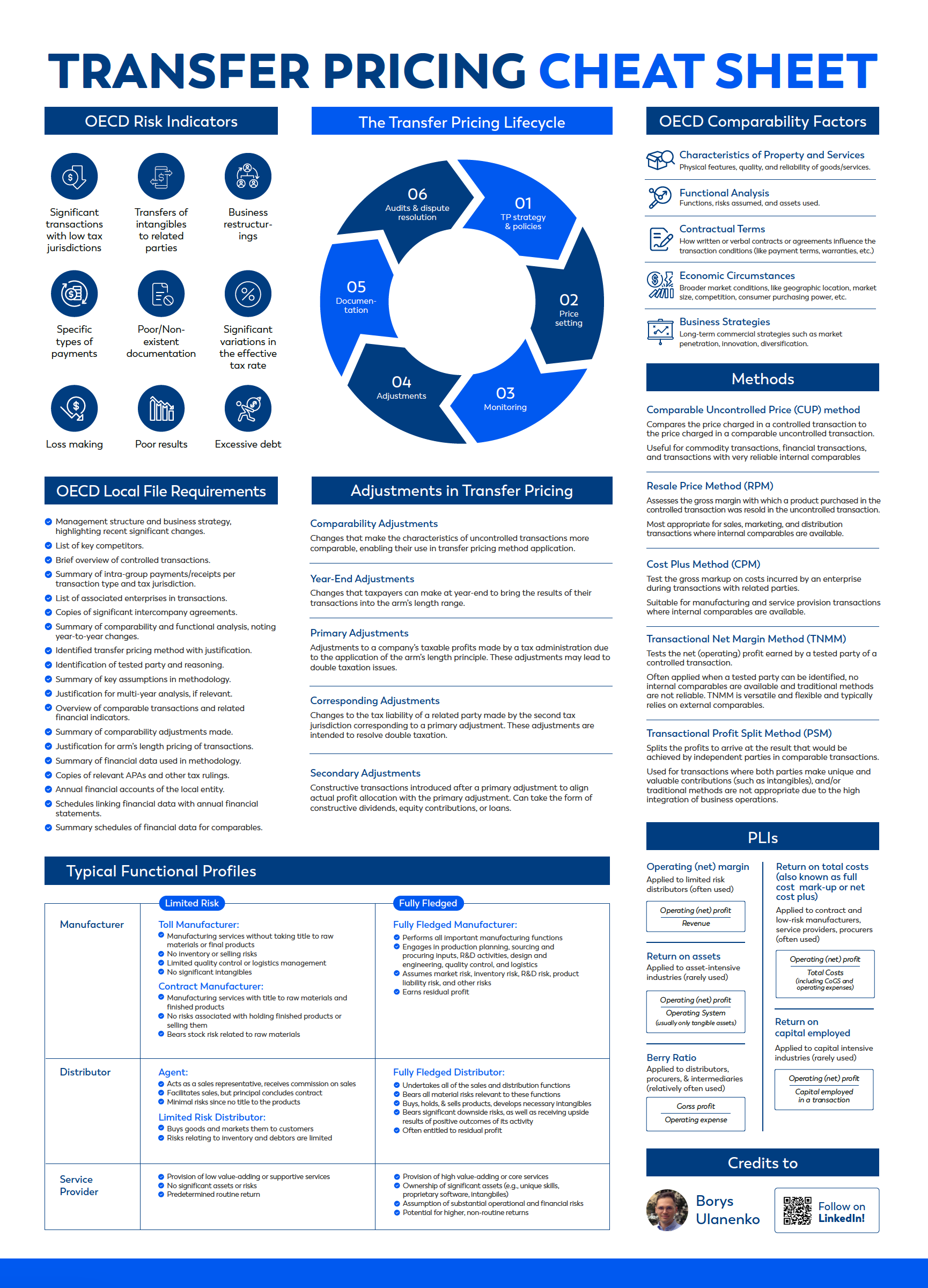Balancing Work and Study: Tips for Preparing for the ADIT While Working Full-Time
Aug 9
/
Borys Ulanenko

Introduction
Juggling a full-time job while studying for the Advanced Diploma in International Taxation (ADIT) can feel like a tightrope walk. But it's definitely possible with the right balance and approach. This blog post will share practical tips to help you prepare for the ADIT while managing your work responsibilities.
Understanding the Challenge
Preparing for the ADIT requires dedication and time, which can be tough when you're also working 9 to 5. The key is to find a balance that allows you to succeed in both without burning out.
Effective Strategies for Balancing Work and Study
Create a Realistic Study Schedule:
• Look at your week and find slots where you can consistently dedicate time to study.
• Early mornings, lunch breaks, or evenings might be good options.
• Stick to this schedule as much as possible.
Set Clear Goals:
• Break down your study material into smaller, manageable parts.
• Set weekly goals to cover certain topics or chapters.
• This approach keeps you on track and makes the workload feel more manageable.
Utilize Weekends Wisely:
• Use weekends for more in-depth study sessions.
• If weekdays are too packed, longer weekend study times can help balance things out.
Combine Study with Work:
• If your job relates to taxation, try to integrate your study topics into your work.
• This can help you understand the practical application of what you’re learning.
Stay Organized:
• Keep your study materials organized.
• Use planners, apps, or calendars to track your study plan and work commitments.
Take Care of Your Health:
• Don't sacrifice sleep, exercise, or healthy eating.
• A healthy body supports a healthy mind, which is crucial for effective studying and working.
Seek Support:
• Let your employer know about your study commitments.
• They might offer flexible hours or support in other ways.
• Join study groups or online forums for additional support.
Use Quality Study Resources:
• Invest in good quality study materials.
• Online resources, study guides, and past exam papers can be very helpful.
Practice Time Management:
• Learn to prioritize tasks both at work and in your studies.
• Use time management techniques to make the most of your study time.
Stay Motivated:
• Remember why you're pursuing the ADIT.
• Keep your end goals in mind to stay motivated.
• Look at your week and find slots where you can consistently dedicate time to study.
• Early mornings, lunch breaks, or evenings might be good options.
• Stick to this schedule as much as possible.
Set Clear Goals:
• Break down your study material into smaller, manageable parts.
• Set weekly goals to cover certain topics or chapters.
• This approach keeps you on track and makes the workload feel more manageable.
Utilize Weekends Wisely:
• Use weekends for more in-depth study sessions.
• If weekdays are too packed, longer weekend study times can help balance things out.
Combine Study with Work:
• If your job relates to taxation, try to integrate your study topics into your work.
• This can help you understand the practical application of what you’re learning.
Stay Organized:
• Keep your study materials organized.
• Use planners, apps, or calendars to track your study plan and work commitments.
Take Care of Your Health:
• Don't sacrifice sleep, exercise, or healthy eating.
• A healthy body supports a healthy mind, which is crucial for effective studying and working.
Seek Support:
• Let your employer know about your study commitments.
• They might offer flexible hours or support in other ways.
• Join study groups or online forums for additional support.
Use Quality Study Resources:
• Invest in good quality study materials.
• Online resources, study guides, and past exam papers can be very helpful.
Practice Time Management:
• Learn to prioritize tasks both at work and in your studies.
• Use time management techniques to make the most of your study time.
Stay Motivated:
• Remember why you're pursuing the ADIT.
• Keep your end goals in mind to stay motivated.
Final Thoughts
Balancing a full-time job while studying for the ADIT is challenging but achievable with the right strategies. A consistent study schedule, effective time management, and a strong support system are key to your success. With determination and careful planning, you can excel in both your career and your ADIT preparation.
For more details about the textbook and the course, contact us:

We are an online educational platform that helps professionals and aspiring individuals to succeed in their goals.
Featured links
Get your free TP cheat sheet!
Discover the essential concepts of TP in one concise, easy-to-follow cheat sheet.

Thank you! Download here.
What is the EU Directive?
The EU is run by an elected EU Parliament and an appointed European Council. The European Parliament approves EU law, which is implemented through EU Directives drafted by the Commission. National governments are then responsible for implementing the Directive into their national laws. In other words, EU Directives are draft laws that then get passed by national governments and then implemented by institutions within the member states.
What is CbCR?
Country-by-Country Reporting (CbCR) is part of mandatory tax reporting for large multinationals. MNEs with combined revenue of 750 million euros (or more) have to provide an annual return called the CbC report, which breaks down key elements of the financial statements by jurisdiction. A CbC report provides local tax authorities visibility to revenue, income, tax paid and accrued, employment, capital, retained earnings, tangible assets and activities. CbCR was implemented in 2016 globally.
